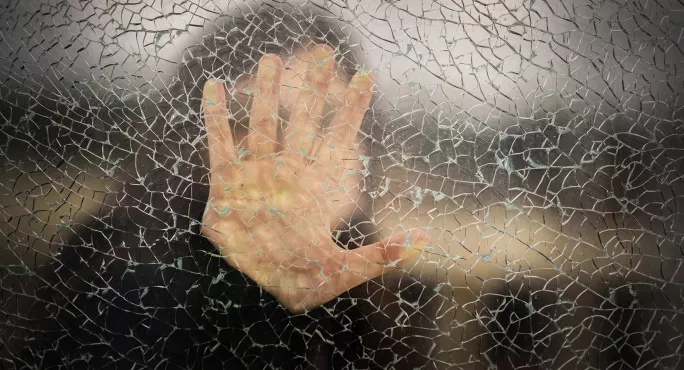School guidance to tackle gender-based violence

New landmark guidance on tackling gender-based violence (GBV) has been published for Scottish schools.
Described as the “first-ever national approach to gender-based violence for schools”, it is a response to recent national research that highlighted growing concerns about misogynistic views and language in schools.
The guidance was launched today by first minister Humza Yousaf and education secretary Jenny Gilruth, with Mr Yousaf emphasising that “prevention and early intervention are key”.
- Related: “Extremist online misogyny” must be tackled in schools, MSPs hear
- Big issue: How to respond to boys inspired by Andrew Tate
- Scotland editor’s view: Schools crucial in the stand against misogyny and sexism
- News: Most female teachers experience misogyny in schools
- Tes survey: Half of teachers need more help on student sexual conduct
The latest Behaviour in Scottish Schools Research report, published in November, highlighted an increase in misogynistic views and language as an emerging concern in schools.
The new guidance, set out in a 62-page document, aims to support schools by:
- Showing different ways GBV can affect young people in a school and how schools can challenge underlying gender inequalities that cause GBV.
- Providing guidance to support schools’ responses to GBV.
- Outlining how schools should record GBV and highlighting further support and learning.
The new publication stems from a working group co-chaired by the Scottish government and charities Rape Crisis Scotland and Zero Tolerance. It includes testimony from students and staff and, the government says, shows “how schools can use education, with an emphasis on compassion, to challenge societal views which normalise gender-based violence”.
GBV includes name calling, intimidation, physical violence, sexual harassment and emotional abuse. It can affect anyone but is more commonly experienced by women and girls.
Preventing gender-based violence
Laura Tomson, co-director of Zero Tolerance, said: “The guidance is a vital step towards preventing and responding to boys’ sexual harassment, rape and abuse of girls, which is all too common. We now look to the Scottish government to demonstrate its commitment to ending boys’ violence against girls by resourcing the guidance’s implementation, so both teachers and children can focus on learning.”
Kathryn Dawson, director of prevention and training at Rape Crisis Scotland, said: “The launch of the first-ever national approach to gender-based violence for schools is a major step.
“The guidance will enable schools to build on our work and prioritise gender-based violence, honouring the courageous voices of the children and young people who called for change.”
The new publication includes sections on recording GBV incidents and responding to gender-based violence experienced by school staff.
GBV ‘will not be tolerated’
Mr Yousaf and Ms Gilruth launched the framework on a visit to Moffat Academy, in Dumfries and Galloway, where they heard about a student-led approach to promoting gender equality.
Mr Yousaf said: “We want schools to create cultures in which all members of the school community know that gender-based violence is unacceptable and will not be tolerated. Prevention and early intervention are key to the approach to address the underlying causes of gender-based violence, particularly gender inequality.
“This framework forms part of our broader action to address the issue of gender equality within education as part of the implementation of our Equally Safe Strategy and broader commitment to eradicate gender-based violence in every part of our society.”
The first minister added: “All children and young people have a right to a learning environment where they are protected, cared for, and in which their rights and needs are respected.”
The new guidance underlines that these issues are not niche and cannot be compartmentalised. It states: “All school policies should actively promote gender equality. The prevention of GBV will intersect with all areas of school life, such as uniform policy or subject choices.”
‘No place for abuse of any form’
Ms Gilruth said: “Ensuring that every child is treated with respect and feels safe at school is a task I do not take lightly.”
The education secretary said there was is “no place for harassment or abuse in any form in our schools”.
Morgan Todd, a Moffat Academy S6 student and prefect leader, said: “As a young woman I would hate to feel there were any limits placed on my aspirations or on those of any girl at Moffat Academy. Gender equality is about living in a fair society where everyone is valued for their talents, rather than judged by their gender.
“At Moffat Academy, I feel everyone gets the chance to write their own story - no matter their background or gender - helping to prepare us for life after school in modern Scotland.”
For the latest Scottish education news, analysis and features delivered directly to your inbox, sign up to Tes magazine’s The Week in Scotland newsletter
You need a Tes subscription to read this article
Subscribe now to read this article and get other subscriber-only content:
- Unlimited access to all Tes magazine content
- Exclusive subscriber-only stories
- Award-winning email newsletters
Already a subscriber? Log in
You need a subscription to read this article
Subscribe now to read this article and get other subscriber-only content, including:
- Unlimited access to all Tes magazine content
- Exclusive subscriber-only stories
- Award-winning email newsletters



